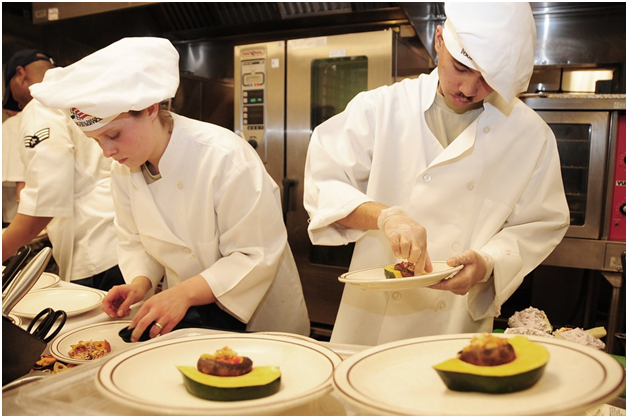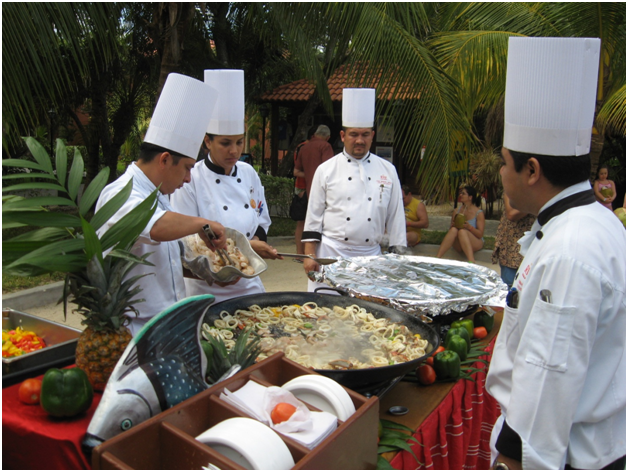In an age of food bloggers, cooking apps and recipe e-books, it’s never been easier for food lovers to explore their passion for all things culinary. For foodies who want to take their interest in cooking further, a career as a chef could be a rewarding and lucrative option.

It is, however, a highly competitive and demanding industry and as well as honing their cooking skills to a high standard, would-be chefs need to be both physically and mentally able to deal with the challenges that the career brings. If this is an industry you’re looking to break into, what do you need to know about the steps needed to enter the profession?
Work experience
The best way to get into the industry is to be able to demonstrate to employers that you have experience within a commercial kitchen. This may mean starting off with more menial tasks such as washing dishes, emptying bins or cleaning down surfaces, but it is a perfect opportunity to learn about life within the kitchen, make contacts within the industry and potentially start working your way up the ladder. Apprenticeship schemes or part time jobs can give you the chance to do this and be paid while you learn.

Qualifications
While many employers favour practical skills over academic ones, certifications alongside practical experience could help to give you the edge in a competitive industry. Dedicated culinary schools offer courses in everything from food safety and hygiene to food science. It can also benefit you to learn about the type of equipment used in commercial kitchens – knowing your industrial mixers from your commercial warewashers (https://www.247cateringsupplies.co.uk/bar-supplies/commercial-warewashers), for example. The Balance highlights good business sense as one of the most important skills a chef can have, so a good understanding of business, cost saving strategies and profit margins is also a good skill to have.
Good mental and physical fitness
Working in a kitchen is both physically and mentally demanding. Being a chef means long hours spent working on your feet in hot conditions. Mentally, it can be stressful and challenging, so it’s important that you are strong and able to perform well under pressure. Good manual dexterity and precision is also a bonus, as much time will be spent chopping, slicing and assembling food.
